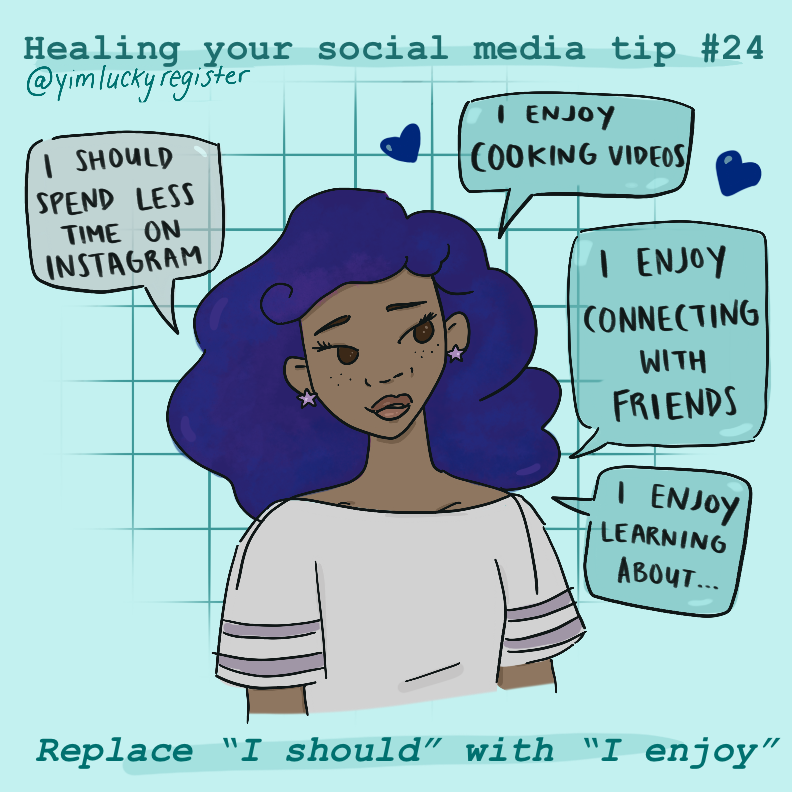Healthy Activities on Social Media
13.3. Healthy Activities on Social Media#
Now let’s look at some of the more healthy sides of social media use.
First let’s consider that, while social media use is often talked of as an “addiction” or as “junk food,” there might be better ways to think about social media use, as a place where you might enjoy, connect with others, learn new things, and express yourself.

Fig. 13.2 Healing your social media tip #24 from Yim Register. See more of their tips here.#
One of the ways social media can be beneficial to mental health is in finding community (at least if it is a healthy one, and not toxic like in the last section). For example, if you are bullied at school (and by classmates on some social media platform), you might find a different online community online that supports you. Or take the example of Professor Casey Fiesler finding a community that shared her interests (see also her article):
@professorcasey #Twitter might be on fire but discovering the internet still changed my life. #booktok #eldermillennial #onlinecommunity #babysittersclub #fanfiction ♬ original sound - Dr. Casey Fiesler
So you might find a safe space online to explore part of yourself that isn’t safe in public (e.g., Trans Twitter and the beauty of online anonymity). Or you might find places to share or learn about mental health (in fact, from seeing social media posts, Kyle realized that ADHD was causing many more problems in his life than just having trouble sitting still, and he sought diagnosis and treatment). There are also support groups for various issues people might be struggling with, like ADHD, or having been raised by narcissistic parents.
